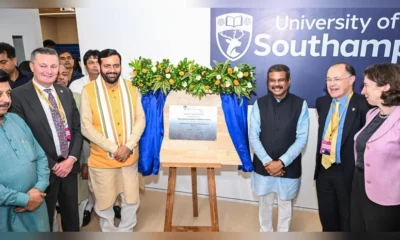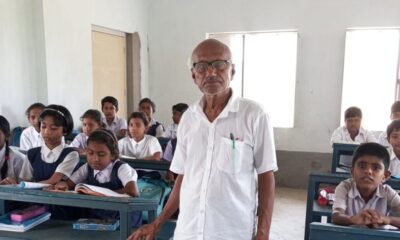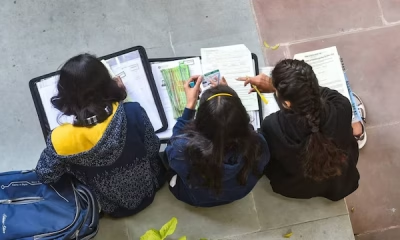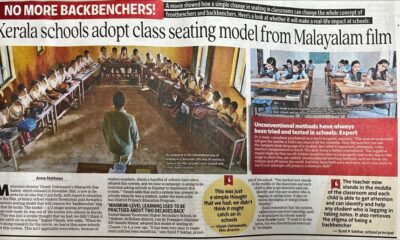News
The 21st century safe school addresses school safety from a holistic perspective
When it comes to the safety of students, it is infinitely better to err on the side of caution.
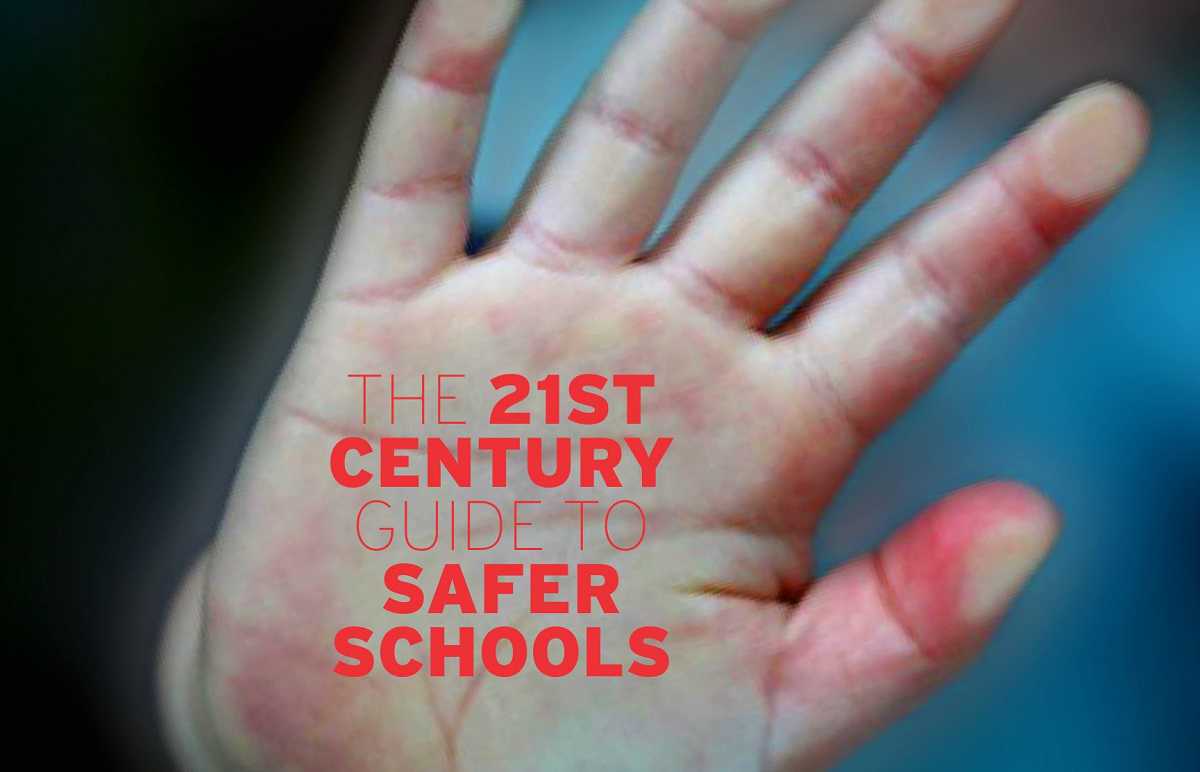
The shock remains but the panic is replaced by a growing resolution: Enough is enough. The recent gruesome incidents (rape/ murder) targeting children in schools, compels a complete relook and rethink of where we are going wrong and what exactly can be done to ensure and secure the safety of our children. Keeping students safe and in an environment where they can flourish is becoming more and more difficult. Children spend a large percentage of their time at school and it is imperative that we make sure that we implement every possible measure to keep them safe.
A new kind of rigorous education is now a must for all children as well, maybe from the very moment they learn to understand the word “safety”. It is not only the parents’ responsibility to make sure their child is safe but also the duty of the school that we equip the minds of our children to do everything in their power to protect themselves from the monsters that roam in society.
Sexual Abuse
A difficult topic but one which demands we shed inhibitions and educate children about the issue and their rights.
In most cases the sexual predator is usually someone the child knows and has interacted with. A teacher, a family member, a neighbour, a friend… any of these people who we come to trust may violate our children.
The concept of ‘Your mind, your body’ should be taught to a child. A child must know that they and only they own their bodies and it is okay for them to say ‘NO’ if they don’t want to be touched. Even if it’s as simple as a hug or a kiss, a child should have the right to say no if it makes them even slightly uncomfortable. They have certain areas as ‘private’ which are off limits to everyone else, including members of the family.
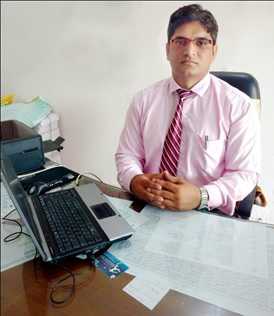
Pushpendra Kumar, Principal, RM Public School, Bijnor
Says Pushpendra Kumar, Principal, RM Public School, Bijnor, “It should be made mandatory for school children to be educated about sex. Since I am from a rural area, I see a lot of parents hesitating to discuss sex with their child. As society leaders we have to take up these responsibilities as sex education is not only for the children of the big cities; it is very important for the children of the rural areas as well to understand and shed inhibitions around the topic.”
Using appropriate terminology is important. It ensures that the child is correctly informed and can talk about it if there is a situation. Making the child feel comfortable during this conversation is a must.

Sonal Ahuja, Director, Shri Ram Foundation Preschool
Sonal Ahuja, Director, Shri Ram Foundation Preschool and Shri Ram Bal Bharti School emphasises on the fact that, “Once we cross the barrier of our own apprehensions, only then will we be able to share many more secrets of ‘sex education beyond the physical act’, with children.”
The mouth, chest area, stomach area, area between the legs, buttocks are off limits to anyone and everyone. That doesn’t mean that everywhere else is okay. Illustrated books on sex education can be used to explain these concepts to children simply and effectively.

Kavita Sanghavi, Principal, MET Rishikul, Mumbai
Sex education is mandatory. According to Kavita Sanghavi, MET Rishikul, “Sex education is imparted through regular sessions by the school counsellor and expert talk on the subject is delivered to students by gynaecologists, psychologists and sexologists from outside.” This awareness goes a long way in keeping children safe.
Bullying
Bullying, one of the largest problems in schools, is a form of abuse that usually occurs when a child or a group of children target another individual and exercise their power over them. It usually happens in areas that have less supervision by the staff or teachers of the school – bathrooms, deserted hallways, cafeterias, at the school bus areas or even in the bus. Bullying comes in many forms – fighting, name calling, teasing, excluding someone repeatedly…. Bullying can be physical or an emotional trauma for the child who is at the receiving end of it.
Bullying isn’t considered a big problem as compared to drug abuse, so most parents and teachers tend to make light of it, but it can have long lasting effects on the child being bullied and on the bully as well.

Sunny Mahajan, Joint Secretary, Pratap World School
If signs of bullying are seen, a parent or teacher must address it immediately. A child disclosing an incident of bullying must be taken seriously. Sunny Mahajan, Joint Secretary, Pratap World School says, “Workshops are conducted with students and there is an Anti-Bullying committee also in place. Statements like these are also highlighted at various places in school. Bullying is strictly prohibited inside the school premises and no such act should go unnoticed or unpunished.”
Don’t brush it away. Certain tell-tale signs can be seen if a child is a victim of bullying. They might withdraw from people and from friends, lose interest in activities they previously used to enjoy, display physical injuries, and show a drop in grades, etc.
If a child is being bullied, they can be helped, first by talking to the parents of the bully, teaching kids to take the non-violent approach to deal with a bully by walking away, talking it out or just by moving away to play with a group of friends. They need to be helped to restore their confidence. The first thing that bullies usually do is to break the self-confidence of a person.
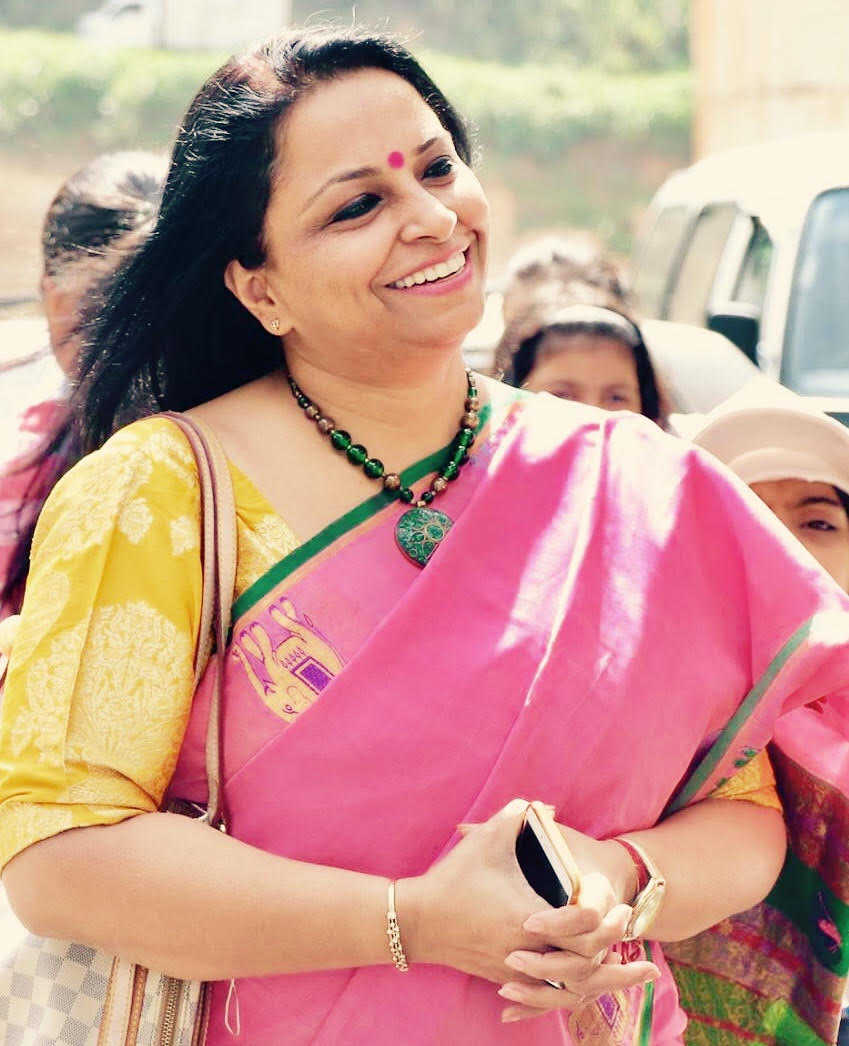
Taruna Kapoor, Vice Principal, The Wisdom Valley Global School, Palwal
Vice Principal, The Wisdom Valley Global School, Palwal, Taruna Kapoor says, “We conduct assessments in our school as to how often bullying occurs, when it occurs and how students and adults intervene. Parents are also made aware of these problems and encouraged to handle them properly. Awareness campaigns and workshops are conducted for the benefit of students. A thorough code of conduct, rules and reporting system is established. Also, a general school culture of acceptance, tolerance and respect is encouraged. Positive social interactions among school staff, students and parents is reinforced. Bullying prevention materials are introduced in the school curriculum and activities.”
She adds, “Bullying can threaten students’ physical and emotional safety at school and can negatively impact their ability to learn. The best way to address bullying is to STOP before it starts.”
Children who are bullies must also be helped as it can cause severe behavioural problems later in life. Children normally turn out to be bullies when they don’t empathise or sympathise with others, they usually like to be the centre of attention, enjoy aggression and love to pick fights. A counsellor at school could talk to the child, and may help get to the root cause of the problem. They might have anger issues, or some changes that are happening at home or they might feel insecure. Counselling may help solve these problems. Children who usually bully have, at some point, been victim themselves.
Learning Disabilities
How receptive are our schools and teachers to kids who have learning disabilities? These kids are most vulnerable and are at a risk for long term academic and social problems. Children who find it difficult in classrooms be it with reading, writing, comprehending, paying attention, proper coordination, memory, and staying organised could be facing learning disabilities. These disabilities can manifest in varying degrees of severity. Some students may struggle with more than one. Proper diagnosis is extremely important, followed by remedial measures to correct their situation. Solutions for children with learning disabilities must focuses on individual achievement, progress and learning to ensure they are successful.
Depression
Although depression is classified as an adult disorder, children are also susceptible to it. When depression is recognized early and treatment is provided, young people can feel and function better in school and life. Schools play a pivotal role in in identifying depression and intervening. School staff must be knowledgeable about depression as the disorder can seriously impair academic and interpersonal behaviour. Some of the signs teachers must look out for are: low tolerance for frustration and negative patterns for thinking, giving up on tasks quickly which they find daunting, doubting their ability to independently complete tasks and solve problems, lethargy, speaking laboriously, difficulty in completely expressing thoughts and ideas, decreased self-esteem and self-worth, and separation anxiety from parents.
In cases where the child is going through depression a home-school communication system has to be developed to share information on the student’s academic, social and emotional behaviour. The best approach taken is often individualised. Children, when helped to overcome their depressed state with patience and perseverance from school staff, home and peers, tend to lead happy and normal lives.
Corporal Punishment
A common disciplinary measure in schools is corporal punishment. Hitting with the hand or with an object like a cane, pinching, excessive physical exercising, twisting of the ear, etc are some forms of corporal punishment. There have been instances where children have lost their lives or have been gravely injured. In most cases the physical hurt can be treated but the psychological and emotional effects can have severe consequences in the future. Mental harassment is also a form of corporal punishment.
There is no excuse to resorting to corporal punishment. It is important to treat every student with respect and care. Children can lose their confidence and self-esteem. With a child being continuously subjected to corporal punishment, the dire consequences could be children developing aggressive or destructive behaviour. They start to think that it is okay to hit someone if not listened to, or they may show cowardice, learning to obey without asking questions or having opinions.
It is the collective responsibility of all to abolish corporal punishment completely. Teachers and educators need to form mutual agreements with students, motivating them and giving them a sense of belonging to the school. It is the right of every human to live a peaceful life without having to face violence in any form.
Online Abuse
Technology cannot be eradicated from children’s lives; it is here to stay. Monitoring them every second of everyday is impossible. So, when they get sucked into the big bad world of virtual reality what do we do? How do we cope with the fact that our kids can be hurt by someone who is sitting thousands of miles away?
The Blue Whale game, which is a 50-task game culminating in a suicide order, is a classic example of children being ensnared online. Developing trust and openness is the way to combat such dangerous influences. Children should be educated to talk openly about things that concern them, whether it is internet related or otherwise. Adults in a child’s life should make sure they don’t blow things out of proportion or overreact to situations but understand the needs of the child so that, in any situation, they feel comfortable to come up and speak to an adult, regardless of the issue.
We need to speak to children, develop their self-worth and give them the confidence that life is not about letting someone or something influence us into the wrong behaviour, and that there are alternatives to combat stress and confidence issues.
Countering the sinister Blue Whale challenge is the Pink Whale challenge or the Baleia Rosa game, which aims to spread not anguish and harm but love and happiness. While the Blue Whale is about depressing messages, self-harm and suicide, Baleia Rosa promotes positivity and encourages people to save lives.
Eventually, youngsters must realize that online challenges are not the ultimate game-changers, and that we all have our inherent traits of strengths and weaknesses – it is up to us to work on them.
Internet Safety
Internet usage has to be monitored continuously as today’s youngsters tend to use the internet heavily these days. It is important to provide kids with safety and protection from online predators.
We must keep an eye out on what they surf online. Children should be taught not to trust everything that they hear or see on the internet and to never reveal any personal information like their real name, which school they go to, their address or even frequent places they hang out. They must also be told not to share their family or friends’ information either.
Most internet browsers have parental controls that can be easily used to set up security safeguards and content filters for language, nudity, sex and violence. Special browsers can also be set up that are kid-friendly. You can allow your child to only have access to this browser.
Children also get sucked into online chats where identity thieves or child predators pose as friends. A constant vigilance has to be maintained to their chat activity.
Children must be allowed to play age appropriate games. Check gaming websites that list the ratings of each game.
Do not allow children to do online shopping by themselves, we never know if they are going into insecure sites to make purchases and could be left vulnerable to online thefts.
School Safety
Schools must ensure that there is CCTV coverage in all corners of the school to ensure that the kids are monitored. When hiring staff and teachers, the school must ensure that they go through the proper channels of hiring, because these are the people who are responsible for a child’s safety and wellbeing. Schools must develop guidelines regarding the hiring process. It shows that the institute has done their homework and that they are a serious organisation and not just a money-churning machine.
Says Kusum Kanwar, Principal, Billabong High International School – Santacruz, “The 21st Century Safe School is a forward-thinking comprehensive approach addressing school safety from a holistic perspective of mental, emotional, physical and social safety. It is much more than physical threats. However, schools at times have a false understanding of school security and poor training and not following best practice guidelines for safety programs, leaves schools vulnerable to threats.
“Students deserve quality education in a learning environment where they feel safe and secure. Ensuring safety training for stakeholders prepares and empowers school administrators, educators and staff to effectively plan and train for a multitude of potential threats risks. It begins with planning and an increased level of awareness of potential threat indicators.
“Safety Training includes creating safe learning environments which are emotionally and psychologically safe, have situational awareness and other critical social and behavioural topics and simulation drills and safety exercises. Many schools have a mindset that training a small number of staff who can train the rest of employees can help, however the outcome will probably not be favourable. Parents need to be a collaborative partner in this endeavour by heightened awareness.
“Safety Training programs need to merge mental health and security practices for creation of a safe school.”
“If a school is aware about the facts related to raising sensible children, then parents automatically start following the culture of the school,” points out Sonal Ahuja, Director, Shri Ram Foundation Preschool and Shri Ram Bal Bharti School. “We hold sessions and make sure that each one of them attend. School activities are not done just as formalities. We make sure that raising a child is a triangular effort: Teacher-Child-Parent. We all have to play our roles equally to reach a set standard or a goal.
“Schools are expected to address behavioural issues, minimize absences, reduce or eradicate mistreatment and bullying, prevent abuse cases and also fully prepare all students regardless of family circumstances or community characteristics. Given these demands, schools may find it difficult to be successful if they are operating in a reactive stance.
“Quality and character of school life can also be improved by welcoming partnerships, which aim at mutual trust and respect, responsiveness, research, reflections and introspections. In this partnership, school, staff, principal, parents, neighbourhood school representatives can develop a plan of action that is responsive to the needs of the school towards safety and security. The goal is not to provide the ‘one size fits all’ set of prescribed action. Schools should now step out of the so called, self-centred approach and bring a more community driven approach, by collaborating and welcoming partnerships – more brains, more reflections and hence most appropriate action plans leading to safe schools.”
Sunny Mahajan, Joint Secretary, Pratap World School also adds, “More personalized care by every member of the school can help in spreading positivity and protection for students. Mobile jammers can be introduced so that children do not become a victim of the Blue Whale game in school premises, particularly boarding schools. CCTV cameras should be present in every nook and corner so that everyone is alert. Police verification of each staff member must be conducted and anyone found with a record should not be kept in school. Psychometric assessment of each and every employee is essential. There should be security guards in school premises at various points as a physical presence always has an edge over any technology. Meditation activities for non-teaching and teaching staff help to maintain a positive balance of energies. Negative thoughts can be channelized. Ensuring more technology driven checks and balance can also help.”
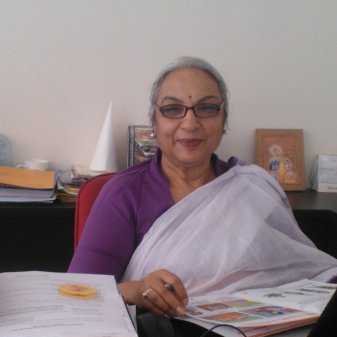
Kalpana Chaudhary, Director, NH Goel World School, Raipur
Kalpana Chaudhary, Director, NH Goel World School, Raipur, says that apart from the regular norms of school safety, “We also do not encourage children driving their own two or four wheelers to school. We encourage children to use school transport. The children who come by their own vehicles have been issued I-cards to the drivers. Their names and phone numbers have to be registered with the school and they have to sign a register and a gate pass while leaving the school. Random and regular breath checking of the support staff specially the transport department is also essential.”
Stay Prepared
Life is full of surprises, not all of them pleasant. It is better that the organisation is prepared for fewer surprises. Institutes must continuously sensitise staff and enhance security measures in all possible ways. Some schools have already increased their security detail. Some of the measures that these schools have taken are:
The school staff and teachers are in the premises much before the students enter the school. After dispersal the building is secured by security staff.
CCTV cameras are installed at strategic points across the school and are regularly monitored by dedicated personnel. Regular maintenance is done to ensure functionality is strictly implemented.
Entry and movement of all adults in the school campus is recorded. The school is secured and the gates are manned by security guards all the time.
Students toilets are clearly demarcated and separate toilets are used by the support staff.
The GPRS system has been incorporated for school buses, while CCTV cameras, first aid and fire extinguishers have been placed in every bus.
Students board and alight from the buses within the school premises under the supervision of the school transport in charge.
Teachers are assigned duties on vantage points during school hours.
The school medical team comprising of doctors and counsellors conduct regular sessions with students on various subjects on safety and otherwise.
Bullying is strictly dealt with. Corporal punishment is not permitted and the physical safety of each child is of utmost importance.
An ambulance is stationed at the campus at all times for any medical emergencies.
Adding to these measures, Kavita Sanghvi, MET Rishikul, recommends that profiles are very clearly outlined to all so that every stakeholder is aware of their roles and responsibilities. Regular monitoring and recording, working closely with parents and earn their support and trust, informing parents of the school safety measures, holding meetings with staff members on child protection policy and their need to look into every aspect of students’ safety, recording of regular inspection by school safety officer, and the Police Clearance Certificate (PCC) of male staff members, are all essential steps.
When it comes to the safety of students, it is infinitely better to err on the side of caution.
This story features as the cover story in our October 2017 issue.
Education
University of Southampton Opens First Full-Fledged Foreign University Campus in India
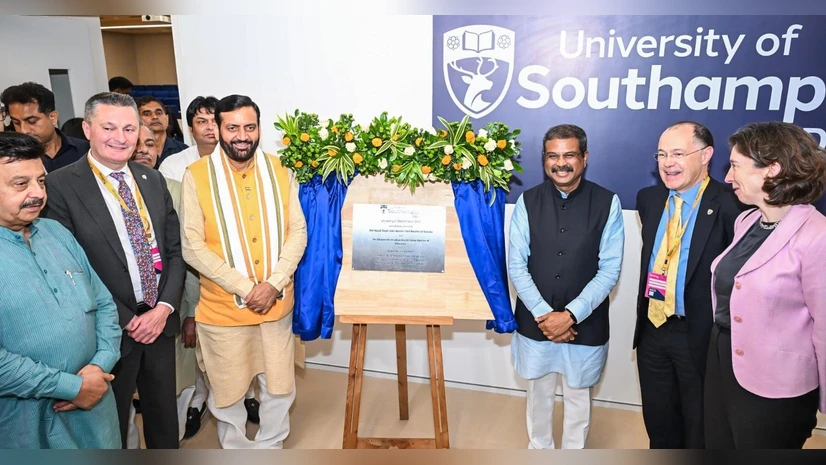
The University of Southampton has launched its fully operational campus in Gurugram, becoming the first foreign university to do so under the University Grants Commission’s (UGC) regulations.
The UK-based institution received its Letter of Intent last year and completed the campus within 12 months. Union Education Minister Dharmendra Pradhan and Haryana Chief Minister Nayab Singh Saini inaugurated the campus on Wednesday, calling it a milestone for NEP 2020 and the India-UK Roadmap 2030.
“This sets a precedent for internationalisation at home and for India’s vision of becoming a global knowledge hub,” Pradhan said.
Beginning in 2025, the campus will offer UK-aligned undergraduate and postgraduate programmes, including BSc degrees in Computer Science, Economics, Business Management, and Accounting & Finance, as well as MSc degrees in Finance and International Management. Students will also have the option to study up to one year at Southampton’s UK or Malaysia campuses.
Pradhan urged the university to introduce strong STEM offerings and focus on global challenges. Haryana CM Saini welcomed the initiative as a boost to Gurugram’s emergence as an education and innovation hub.
The university will recruit 75+ faculty members with international credentials. The inaugural student cohort includes candidates from India, the UAE, and Nepal.
Higher Education Secretary Vineet Joshi added that the UGC’s streamlined guidelines are enabling more such collaborations, helping position India as an attractive destination for international education.
The University of Southampton is a Russell Group institution and ranks among the top 100 universities worldwide. Its Gurugram campus is expected to strengthen India’s global academic ties and offer students a world-class, locally accessible education.
Education
NCERT’s New Class 8 History Textbook Addresses “Darker Periods”, Highlights Religious Intolerance and Resilience

The National Council of Educational Research and Training (NCERT) has released the new Class 8 Social Science textbook Exploring Society: India and Beyond for the 2025–26 academic session, marking the first time students are introduced to the Delhi Sultanate and the Mughal Empire at this grade level under the revised National Curriculum Framework for School Education (NCF-SE) 2023.
This new volume, aligned with the National Education Policy (NEP) 2020, takes a more direct approach in describing episodes of violence, religious conflict, and iconoclasm during the 13th to 17th centuries, while simultaneously including cautionary notes emphasizing historical context and contemporary responsibility.
A Shift in Framing Historical Conflict
In a departure from previous editions, the book explicitly refers to political instability, destruction of religious sites, and forced conversions during the Delhi Sultanate and Mughal rule. It discusses multiple invasions, plunder campaigns, and attacks on temples by rulers and generals such as Malik Kafur and Alauddin Khilji.
A newly added explanatory section, titled “A Note on Some Darker Periods in History,” outlines the rationale for such inclusions, stating the intent is to understand historical violence dispassionately and not attribute blame to present-day communities. The note reads, “Understanding the historical origin of cruel violence, abusive misrule or misplaced ambitions of power is the best way to heal the past and build a future where, hopefully, they will have no place.”
Focus on Mughal Rule: Blending Power with Faith
The chapter titled Reshaping India’s Political Map covers major developments under the Mughals, from Babur to Aurangzeb. Babur is depicted as both a cultured figure and a “brutal conqueror,” with references to his own writings about the aftermath of his military campaigns. Akbar is described as having a reign marked by “a blend of brutality and tolerance,” acknowledging both his early military actions and later efforts at interfaith dialogue.
Aurangzeb’s rule is discussed in terms of both religious motivations and political strategy. The book references farmans (imperial edicts) ordering temple demolitions and notes debates among scholars about his intentions.
While these sections document religious intolerance and violence, they are accompanied by recurring statements that urge students not to draw contemporary conclusions or apportion modern blame for historical events. One note reads: “Some of the invaders and rulers mentioned above committed terrible deeds and atrocities… but it is important to keep in mind that we, today, bear no responsibility for actions of individuals hundreds of years ago.”
Shivaji and the Marathas: Strategic Leadership and Cultural Identity
The subsequent chapter on the Marathas emphasizes Shivaji’s leadership, administrative innovation, and cultural contributions. He is portrayed as a leader who upheld his faith while respecting others and worked to restore desecrated temples.
According to the NCERT, these revisions are not simply textbook updates but part of a comprehensive overhaul that reimagines pedagogy and curriculum in light of NEP 2020. “Any comparison with the old syllabus and textbooks is therefore fruitless,” the NCERT said in a public statement.
Education
QS Rankings 2026: Delhi Named Most Affordable; Mumbai In Top 100 for Best Student Cities

The QS Best Student Cities 2026 rankings, released on July 15 by UK-based higher education consultancy Quacquarelli Symonds (QS), have placed Seoul as the world’s best city for students, overtaking London and Tokyo for the first time. However, the rankings also mark significant progress for Indian cities, particularly on the affordability and employment outcomes fronts.
India’s four largest metros—Delhi, Mumbai, Bangalore, and Chennai—all improved their positions compared to last year. Mumbai re-entered the global top 100, climbing 15 spots to rank 98th. Delhi rose to 104th, Bangalore to 108th, and Chennai reached 128th.
Among the standout achievements, Delhi has been ranked the world’s most affordable city for students, scoring 96.5 out of 100 on the affordability index. Mumbai (86.3), Bangalore (84.3), and Chennai (80.1) also featured among the top 15 globally in this category. The affordability metric assesses cost-of-living factors such as tuition, housing, and daily expenses.
The QS Best Student Cities Rankings are based on six key indicators: QS university rankings, student mix, desirability, employer activity, affordability, and student view. To qualify, cities must have a population exceeding 250,000 and host at least two universities featured in the latest QS World University Rankings.
India’s upward trajectory in the 2026 edition reflects both domestic education reforms and international recognition. Jessica Turner, CEO of QS, noted that the progress aligns with the goals of India’s National Education Policy (NEP) 2020, especially in promoting global engagement and student-centric learning. “In just ten years, India has seen a 390% increase in the number of universities featured in the QS World University Rankings,” she stated.
In the employer activity category, Delhi and Mumbai broke into the global top 50, signaling strong graduate employability. Bangalore registered the steepest climb, rising 41 positions to 59th, while Chennai jumped 29 spots, indicating the growing international credibility of graduates from these cities.
Global Highlights:
-
Seoul ranked #1 globally, followed by Tokyo (#2) and London (#3).
-
Munich and Melbourne rounded off the global top five.
-
A notable shift toward Asia is evident, with 39 cities from the Asia-Pacific region (excluding Australia and New Zealand) featured in the rankings. Among the 34 Asian cities listed in 2025, 26 improved their positions this year.
-
Other high-performing Asian cities included Kuala Lumpur (#12), Beijing (#13), and Taipei (#14), achieving their highest-ever rankings.
As India approaches the fifth anniversary of NEP 2020, the steady rise of its cities in global education indices suggests that structural investments in quality, accessibility, and employability are beginning to pay off. While challenges remain, especially in global perception and desirability metrics, the country’s metros are steadily carving a space in the international higher education map.
Education
From Classrooms to Boardrooms: Women Leaders Drive the Vision of Viksit Bharat
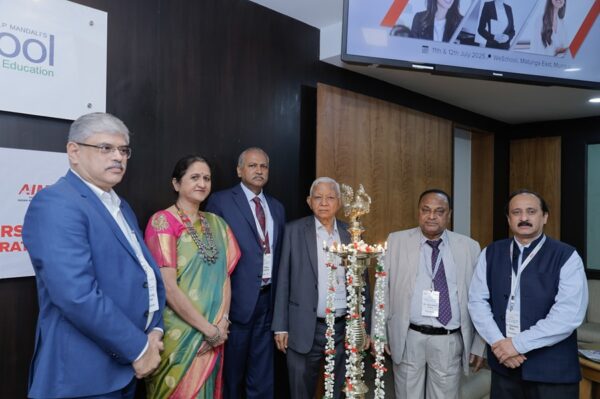
The summit on ‘Women in Leadership for Viksit Bharat’, jointly hosted by WeSchool, the Association of Indian Management Schools (AIMS), and Ratan Tata Maharashtra State Skills University, brought together a cross-section of stakeholders from governance, academia, and industry to discuss a crucial gap in India’s growth story: the underrepresentation of women in leadership roles.
At the heart of the discussion was a paradox: while women constitute 48% of India’s higher education enrollment, only a fraction make it to decision-making roles. For instance, just 9–10% of women reach boardrooms, and a mere 12% occupy leadership positions, despite 41% of the country’s higher education cohort being female. These figures, presented and reiterated throughout the summit, underscore a pressing concern — that India’s demographic dividend is incomplete without addressing its gender leadership gap.
The event positioned itself not just as a ceremonial gathering but as a call to institutional action. Leaders stressed that India’s journey toward becoming a Viksit Bharat (Developed India) by 2047 must be inclusive by design, not by default. That means policy, education, and workplace ecosystems must align to enable women from diverse socio-economic backgrounds to step into leadership roles.
The summit’s sessions explored key barriers — lack of access, socio-cultural constraints, gaps in mentorship, and the invisibilisation of women’s work in both formal and informal economies. There was also a strong focus on the role of skilling and education in building leadership capacity, particularly in sectors like STEM, administration, entrepreneurship, and governance.
Countries like Rwanda, Finland, and New Zealand were frequently referenced as case studies where inclusive leadership models have translated into stronger national outcomes — from better health and education indices to more equitable economies. India, speakers noted, has the talent pool — but it needs structural and cultural shifts to realise its full potential.
Prof. Dr. Uday Salunkhe, Group Director of WeSchool, pointed out: “While India sees 41% women in higher education, only 12% reach leadership roles — a gap we must urgently address. At WeSchool, we see education as a transformative force.”
Dr. Apoorva Palkar, Founding VC of Ratan Tata Maharashtra State Skills University, echoed that sentiment, highlighting that this isn’t just a gender issue — “It’s a missed opportunity for inclusive growth.” If women aren’t present at tables where decisions are made, she argued, “those decisions will never fully represent or benefit society at large.”
Government participation was also robust, with IAS officers including Mrs. Vinita Singhal, Mrs. Radhika Rastogi, and Mrs. Manisha Verma bringing grassroots perspectives on gender-inclusive policy design. Academic leaders like Dr. Ujwala Chakradeo and Dr. Upasna Agrawal discussed institutional reforms to embed leadership training early in educational pathways.
Industry voices such as Ms. Aarti Harbhajanka (Primus Partners), Dr. Tanaya Mishra (In-Solution Global Ltd.), and Ms. Poyni Bhatt (formerly of SINE–IIT Bombay) provided insights into how startup ecosystems and corporate governance structures can either accelerate or inhibit women’s rise to the top.
Throughout the summit, one theme remained constant: India cannot afford to exclude half its population from the leadership narrative. The path to a developed India must be paved with inclusive leadership, and that means reimagining how women access, navigate, and shape systems of power and progress.
The summit concluded with a shared resolve: to turn dialogue into design, and design into durable change. If Viksit Bharat is the destination, women’s leadership is the vehicle that can drive us there — faster, fairer, and stronger.
Education
NCERT Launches New Class 5 & 8 Textbooks, Makes Art Education Mandatory
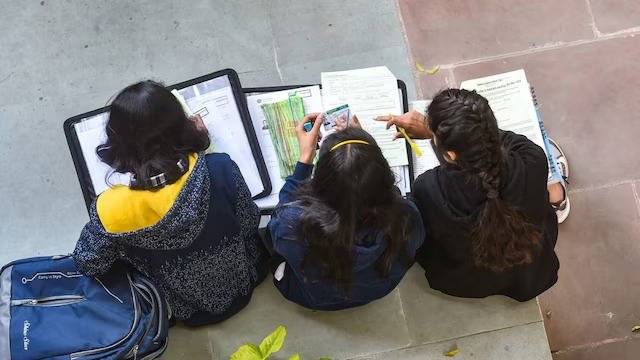
The National Council of Educational Research and Training (NCERT) has launched a new set of textbooks for Classes 5 and 8 for the 2025–26 academic session, designed in accordance with the National Education Policy (NEP) 2020 and the National Curriculum Framework for School Education (NCF-SE) 2023. This marks a significant shift in India’s school education approach, with a renewed focus on creativity, scientific temper, skill development, and values rooted in Indian heritage.
The new Class 8 textbooks include Curiosity (Science), Kaushal Bodh (Vocational Education), Poorvi (English), Malhaar (Hindi), and Kriti (Art Education). For Class 5, the newly introduced books are Santoor (English) and Veena (Hindi). Designed with simple language and rich visuals, these books aim to spark curiosity while enhancing concept clarity.
Among the highlights is Curiosity, the Class 8 science book that covers topics across physics, chemistry, and biology through real-life examples and activity-based modules. It includes dedicated chapters on COVID-19 vaccine development, India’s space missions like Chandrayaan, Ayurveda, and the Make in India initiative—positioning science education within the context of India’s modern achievements.
Kaushal Bodh introduces students to skill-based learning, preparing them for real-world employment and entrepreneurship. Poorvi, the Class 8 English book, presents stories based on the lives of national icons such as Major Somnath Sharma, Verghese Kurien, and physicist Bibha Choudhary to inspire values like courage and innovation.
In a landmark move, art education has been made compulsory. Kriti brings music, drama, and theatre into the mainstream classroom, as recommended by NEP 2020. This initiative aims to nurture creativity across disciplines, allowing children to express themselves beyond textbooks and tests.
For younger learners, the new Class 5 books Santoor and Veena adopt an activity-based learning model that promotes language acquisition through stories, songs, and play—departing from rote methods to make early education more engaging.
Despite enthusiasm from schools and parents, distribution has seen some hurdles. Reports indicate limited stock availability on platforms like Amazon and in local stores. Many parents and educators are urging NCERT to make digital versions of the books available in PDF format. NCERT has acknowledged the demand and plans to print over 15 crore copies to meet nationwide needs. Partnerships with e-commerce platforms are also being explored to streamline delivery.
This new textbook rollout is part of a broader national effort to reimagine the Indian classroom—rooted in local knowledge, focused on real-world skills, and responsive to 21st-century learning needs.
Education
US Embassy Tightens Social Media Checks for Student Visas

The U.S. Embassy in New Delhi has intensified its vetting process for applicants of F, M, and J non-immigrant visas by requiring disclosure of and public access to social media accounts used over the past five years. Under the updated rules, all social media handles—including Facebook, Instagram, Twitter, LinkedIn, TikTok, Reddit, and others—must be listed on the DS‑160 form, and profiles must be set to public during the visa screening process.
Consular officers are explicitly authorised to review candidates’ public posts, comments, and shares—and may even check private messages—to assess “hostility toward the United States” or support for extremist or anti‑U.S. content. Failure to comply, misrepresent information, or omit an account can result in visa denial and bar future visa eligibility.
This update forms part of a broader expansion of screening procedures initiated in June. Diplomatic posts worldwide paused student visa interviews to implement the new protocol, which treats every visa decision as a “national security decision”. The U.S. Embassy in India also recently issued a reminder via X, stating continuous monitoring of visa holders is in effect and violations of U.S. laws—even after visa issuance—can result in revocation and deportation.
These changes reflect the U.S. administration’s emphasis on enhanced national security and combating visa fraud. While some students and immigration advocates have raised concerns about privacy and freedom of expression, the Embassy stresses that visa screening is an ongoing process. Indian students and other applicants are advised to review their online activity and ensure transparency with their DS‑160 submissions.
Education
CBSE Requests Affiliated Schools to Host NIOS Public Exams in October–November 2025

The Central Board of Secondary Education (CBSE) has called on its affiliated schools to assist with the conduct of the National Institute of Open Schooling (NIOS) public examinations scheduled for October–November 2025.
In a recent official communication addressed to principals and heads of schools, CBSE emphasised that NIOS requires infrastructural and logistical support to conduct its biannual board examinations, which include assessments for Class 10, Class 12, and various vocational courses.
“The next Public Examinations of NIOS are scheduled to be held in October–November 2025,” the notice stated, adding that CBSE-affiliated institutions have historically played a key role in enabling NIOS to run its exams smoothly.
Schools willing to extend support have been asked to register their intent on the official NIOS website at https://exams.nios.ac.in under the section: Examination Centre > Register Now.
NIOS operates under the Ministry of Education and is the country’s largest open schooling body. It caters to learners from diverse backgrounds, offering flexibility in learning and examination schedules, especially for students who may be outside the traditional school system.
“Your assistance will help NIOS in holding Public Examinations of its learners,” the CBSE notice concluded, underlining the collaborative nature of this effort.
By participating in this initiative, CBSE schools are not only supporting a national mandate for inclusive education but also contributing to educational equity by helping millions of NIOS learners access fair and organised exam environments.
Education
No More Backbenchers: How a Simple Seating Shift Is Reimagining Learning
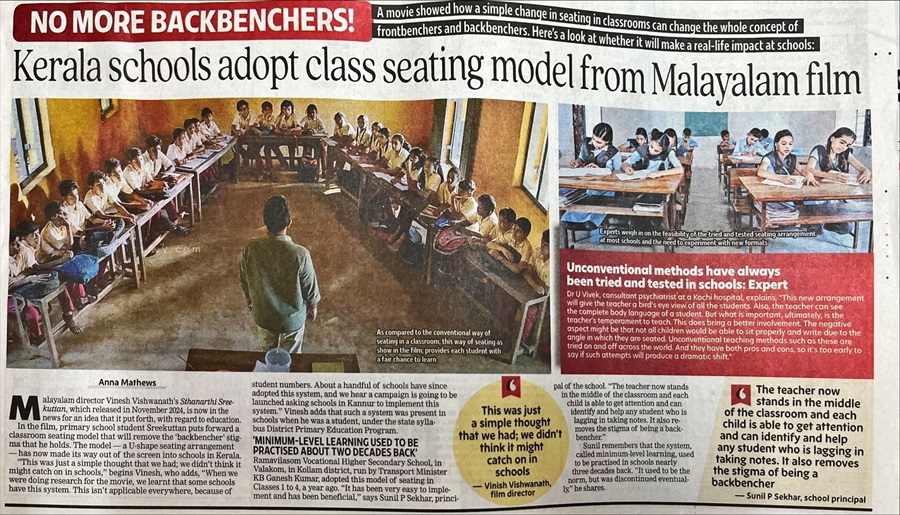
When was the last time you thought about where your students sit? If you think a seat is just a seat — think again.
A simple shift in seating arrangements, sparked by the Malayalam film Sthanarthi Sreekuttan, is inspiring schools in Kerala to break the age-old divide of “frontbenchers” and “backbenchers”. The Times of India recently reported how some schools have begun rethinking how rows of benches shape mindsets — often turning bright learners into passive listeners by default.
Preethi Vickram, Founder of Tapas Progressive Learning, applauded this unique approach online:
The truth is, classroom seating is more than furniture. It’s a mirror of our teaching philosophies. For decades, rigid rows have told students to sit down, face forward, and stay quiet while the teacher talks. One person speaks, everyone else absorbs. But learning doesn’t work in a straight line — it happens in loops, debates, disagreements, and those random questions that make everyone think.
It’s not just an emotional idea — there’s solid science behind it. A 2020 review in Frontiers in Psychology found that classroom layouts directly affect interaction and motivation. The Classroom Direct blog points out that flexible layouts foster collaboration, peer learning, and inclusivity. And a 2022 ESI Conference study noted that traditional seating can create power hierarchies where only frontbenchers thrive.
In India, we know this divide well. Backbenchers are often seen as mischievous or disinterested — but what if they were simply disengaged by design? Many schools still enforce outdated seating rules: girls must sit separately from boys; ‘weak’ students banished to the back; bright ones pushed to the front like prized trophies. But what are we telling children when we make them sit apart based on gender, marks or silence? That some voices matter more than others.
Architects and education designers have long championed a different approach. Rosan Bosch’s designs for Sweden’s Vittra School are modular and playful, showing that space itself can be a teacher. Danish Kurani, an expert in reimagining learning spaces, writes that the biggest mistake schools make is assuming they can modernise teaching methods without changing the physical space: “You can’t have collaborative, project-based learning in a classroom still set up for rows of passive listening.”
Kerala’s small but significant shift is a reminder that big change often starts with small, visible actions. When students sit in circles, clusters, or flexible pods, they are more likely to speak up, listen actively, and learn from one another. It helps break the silent stigma that ‘the back’ means you don’t matter.
Designers like Kurani argue that students should have a voice in how their classrooms look and feel — because when the space reflects curiosity and movement, it encourages the same in young minds. The Studio Schools Trust in the UK, the Reggio Emilia approach in Italy, and Big Picture Learning schools in the US all prove that flexible, student-centred learning environments are not “alternative” anymore — they’re the future.
And this shift doesn’t need fancy gadgets or big budgets. It’s the lowest-cost ‘edtech’ upgrade schools can make: moving a few benches, opening up a circle, creating nooks for quiet work and spaces for loud debate. It tells children: “Your voice matters, wherever you sit.”
In a world that needs more curiosity, connection, and creativity — we cannot afford to let seating stifle learning.
So let’s not just remove the backbenchers — let’s remove the very idea of front and back.
Because when every child feels seen and heard, there are no bad seats in the house.
References: * Classroom Direct Blog, 2021 * Frontiers in Psychology, 2020 * ESI Conference Proceedings, 2022 * Danish Kurani on Common Classroom Design Mistakes
Education
NEP 2020’s Panch Sankalpa to Guide Central Universities: Dharmendra Pradhan
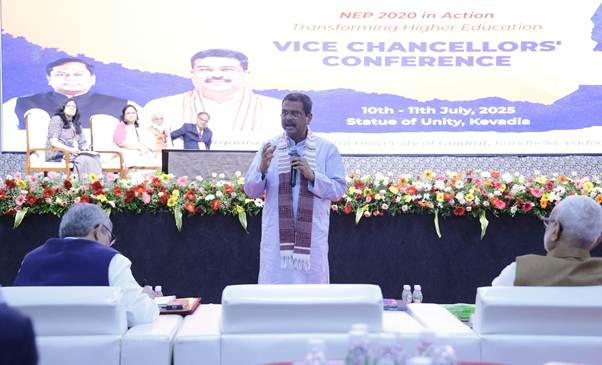
More than 50 Vice Chancellors of India’s central universities gathered in Kevadia, Gujarat for a two-day conference to assess the implementation of the National Education Policy (NEP) 2020 and lay the groundwork for the coming years. Organised by the Ministry of Education in collaboration with the Central University of Gujarat, the conference seeks to align higher education institutions with the broader national vision of Viksit Bharat by 2047.
Union Education Minister Dharmendra Pradhan, addressing the gathering, outlined the Panch Sankalpa of NEP 2020—next-generation education, multidisciplinary learning, innovation, holistic development, and Bharatiya orientation—as the guiding principles for institutional transformation. He emphasised that India’s higher education ecosystem has undergone significant change over the last decade, becoming more flexible, inclusive, and innovation-driven. Student enrolment has increased by 30% since 2014–15 to reach 4.46 crore, with female enrolment growing by 38%. The gross enrolment ratio for female students now exceeds that of males, while enrolment among Scheduled Castes and Scheduled Tribes has also improved. PhD enrolments have nearly doubled, with women registering a 136% increase.
The Minister urged Vice Chancellors to play a transformative role by redesigning curricula, improving digital infrastructure, strengthening faculty training, and promoting multidisciplinary education. He reiterated the goal of raising the gross enrolment ratio in higher education to 50% by 2035, in line with the NEP’s vision. Placing students at the centre of all reform efforts, he called on universities to foster job creators, ethical innovators, and socially responsible graduates.
Pradhan also encouraged institutions to reflect on India’s intellectual heritage while preparing for a global future, invoking the academic “Triveni Sangamam” of celebrating the past, calibrating the present, and creating the future. He recommended that each university prepare a strategy paper to fully implement NEP 2020, incorporating Indian Knowledge Systems, digital skilling initiatives, and campus-led innovations. He proposed that such review conferences be hosted at the campus level to promote decentralised engagement and exchange of ideas.
Dr. Hashmukh Adhia, Chancellor of the Central University of Gujarat, spoke about the six principles of karmayoga and the importance of Indian knowledge systems in shaping individual and collective progress. Dr. Vineet Joshi, Secretary of Higher Education, reflected on the journey since the policy’s launch and reiterated that NEP 2020 imagines universities not as degree-granting institutions, but as ecosystems of innovation, research, and holistic development. Dr. Sunil Barnwal, Additional Secretary, underlined the foundational values of access, equity, quality, affordability, and accountability, and highlighted the importance of stakeholder partnerships in driving reform.
Prof. Rama Shanker Dubey, Vice Chancellor of Central University of Gujarat, reaffirmed that all central universities are committed to advancing the vision of Viksit Bharat through concrete, on-ground measures. The conference, spread over ten thematic sessions, includes discussions on the Four-Year Undergraduate Programme, digital tools like SWAYAM and AAPAR, university governance through SAMARTH, alignment of education with the future of work, and research and innovation frameworks such as ANRF and PMRF. Other themes include equity, internationalisation, faculty development, and the integration of Indian languages and knowledge systems.
Participating universities include Jawaharlal Nehru University, University of Delhi, Tripura University, Central University of Rajasthan, Sikkim University, and many others. The outcomes of the conference are expected to help define the next phase of NEP 2020 implementation, enabling institutions to become more responsive, inclusive, and globally competitive.
Education
Less Than Half of Indian Schools Offer Skill-Based Courses for Senior Students: NCERT Survey
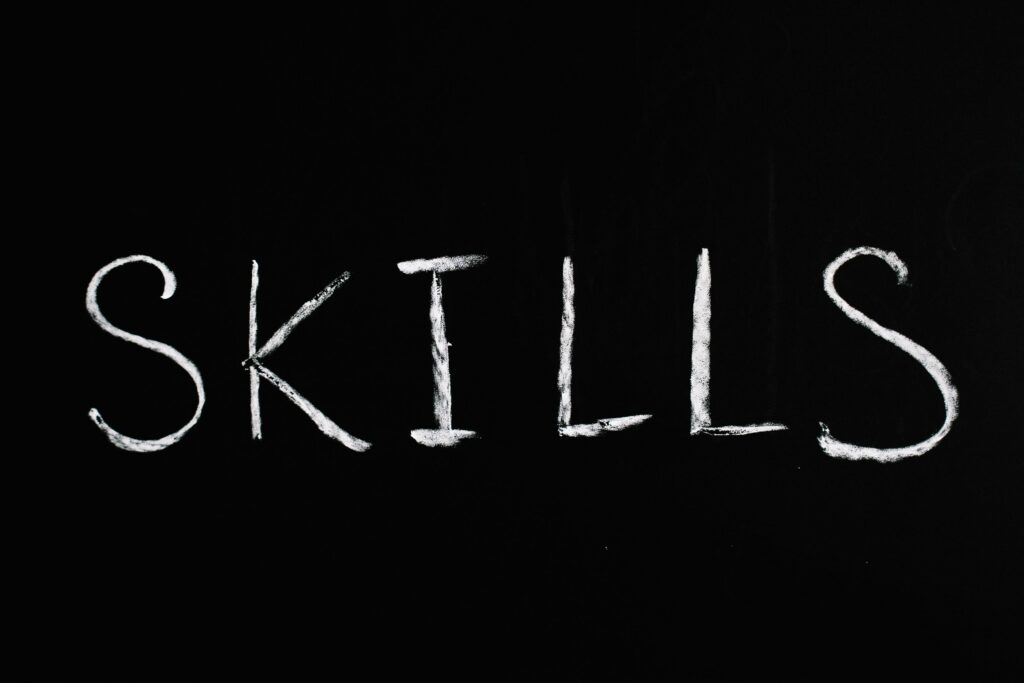
A recent survey conducted by NCERT’s National Assessment Centre has revealed that only 47% of schools across India currently offer any skill-based courses to students in Class 9 and above. This statistic highlights a significant gap in the availability of practical, job-ready education at the secondary level—an area that India’s New Education Policy has been aiming to strengthen.
The survey also found that student enrolment in these courses is even lower. Just 29% of students in Classes 9 and above have opted for skill-based subjects, indicating the need for better awareness, guidance, and integration of these programmes into mainstream learning.
The courses that are being offered include trending and industry-relevant subjects like Artificial Intelligence, Data Analytics, Digital Marketing, and E-commerce. However, experts believe these numbers are far from adequate in a country with one of the world’s largest youth populations.
At the higher education level, there is a stronger push for integrating skills into curricula. Many skill universities now structure their programmes with a 60% to 70% skill-based component, offering students a blend of theoretical and practical knowledge designed to make them workforce-ready.
The NCERT report recommends that more schools must be brought into the fold of skill education. With the job market rapidly evolving and the demand for digital and emerging technology skills growing, strengthening school-level skill education can bridge the gap between academic learning and real-world employability.
Building robust vocational streams in schools could also help address the challenge of students dropping out after secondary education due to a lack of clear pathways into meaningful careers.
-

 Education2 months ago
Education2 months agoCBSE’s ‘Sugar Boards’ Initiative: Tackling the Sweet Crisis in Indian Schools
-
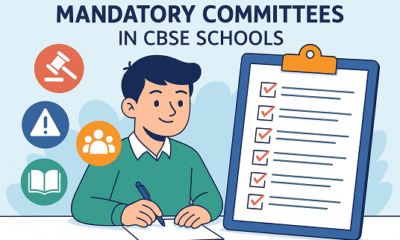
 Education3 months ago
Education3 months agoIs Your School Following These Mandatory CBSE Committees?
-
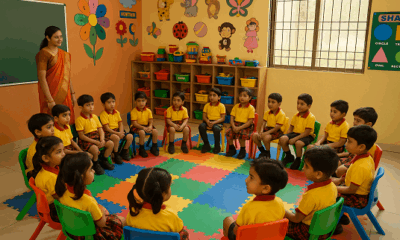
 Education3 months ago
Education3 months agoMaharashtra to Regulate Pre-Primary Education with New Law Aligned to NEP 2020
-

 Education3 months ago
Education3 months agoMAHAJYOTI’s Book Distribution Scheme to Empower 7,000 OBC Students Preparing for JEE/NEET & MHT-CET
-
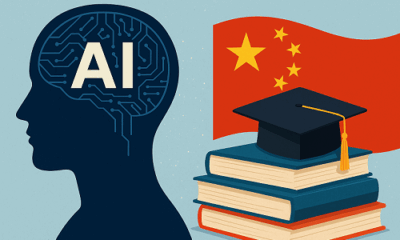
 Education3 months ago
Education3 months agoChina Embarks on Ambitious AI-Driven Education Reform to Build a ‘Strong Education Nation’ by 2035
-
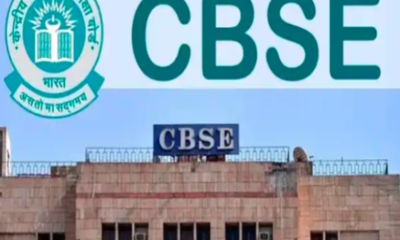
 Education3 months ago
Education3 months agoCBSE Introduces Mandatory Bridge Course for Classes 6 to 12 in Chhattisgarh Under NEP 2020
-
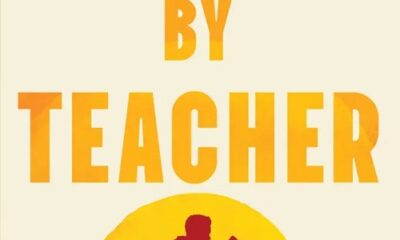
 Education2 months ago
Education2 months agoJohn King’s Book ‘Teacher By Teacher’: A Global Tribute to the Transformative Power of Education
-
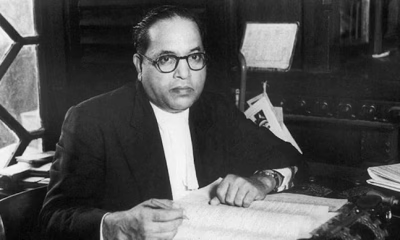
 Education3 months ago
Education3 months agoRewriting Ambedkar: Why Students Must Know the Man Beyond the Constitution
-
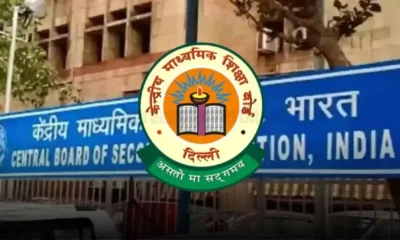
 Education3 months ago
Education3 months agoCBSE Mandates 50-Hour Annual Training for Teachers, Declares STEM as 2025 Theme
-

 Education2 months ago
Education2 months agoBanu Mushtaq’s International Booker Win Is a Wake-Up Call for Indian Schools to Reclaim Literature




